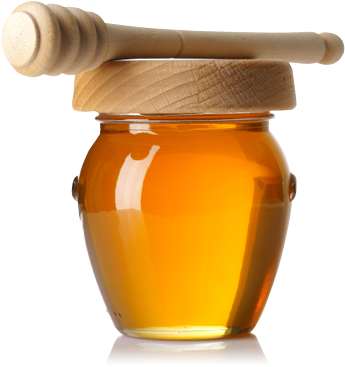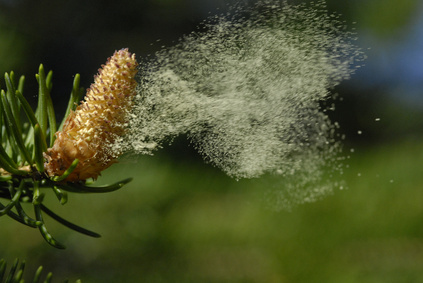Now is the time of year for seasonal threats. As the trees start to bloom and the pollen is released into the atmosphere, seasonal threat sufferers begin their annual ritual of sniffling and sneezing. Each year, 35 million Americans fall prey to seasonal allergic rhinitis, more commonly known as hay fever.
The biggest Spring allergy trigger is pollen — tiny grains released into the air by trees, grasses, and weeds for the purpose of fertilizing other plants. When pollen grains get into the nose of someone who is allergic, they send the immune system into overdrive.
The immune system, mistakenly seeing the pollen as foreign invaders, releases antibodies — substances that normally identify and attack bacteria, viruses, and other illness-causing organisms. The antibodies attack the allergens, which leads to the release of chemicals called histamines into the blood. Histamines trigger the runny nose, itchy eyes, and other symptoms of seasonal threats.
Although there is no magical cure for Spring seasonal threats, there are a number of ways to combat them. Below are are few tips for creating a life less prone to seasonal threats.
PETS
Dogs: wash monthly and brush weekly.
Cats: clean liter boxes daily and brush cats weekly. Every other week, empty litter box completely and clean/disinfect with a dilution of our Protective Blend Cleaner Concentrate. Rinse, dry and then refill the litter box.
Birds: clean out cage at least every other day. Pick up feathers as soon as possible.
HOME
Pillows: place in the dryer on high heat for 20 minutes, weekly.
Linens: wash in hot water, weekly, with our Protective Blend Laundry Detergent. If you use bleach, use chlorine free.
Carpet: vacuum weekly, preferably with one that contains a HEPA filter.
Shelves & Ceiling Fans: wipe down with a cloth that has been moistened with a dilution of our Protective Blend Cleaner Concentrate. Do this weekly.
Windows and sills: Clean at least monthly with an all natural window cleaner. You can make one by combining 1 1/2 cups white vinegar, 1/2 cup distilled water and 8 drops of any citrus oil of your choice (could use Lemon, Lime, Grapefruit, Wild Orange or a combination there of) in a 16 oz glass spray bottle.
HEPA filters: place a few of these around your home and run at night.
Houseplants: these are nature’s air filters. A great resource is “How to Grow Fresh Air”, by Wolverton.
Diffusers: diffusing essential oils can purify air of unwanted odors and some airborne pathogens. our Cleansing Blend is a perfect choice. Low or no-heat essential oil diffusers are recommended as they do not change the chemical structure of the oil being diffused.
Humidifiers: for those who live in drier climates, using these in your bedrooms while sleeping will not only improve skin, but keep sinuses moist and less irritated.
Candles: avoid using petroleum based candles. These produce Benzene when lit and this is a known carcinogen. Instead, you can use soy candles that have cotton wicks and are scented with pure essential oils.
Cleaning products: consider making your own household cleaners by using different dilutions of our Protective Blend Cleaner Concentrate.
 SELF
SELF
- Wash hands with our Protective Blend Foaming Hand Wash. Protective Blend Foaming Hand Wash cleans and softens hands while providing natural protection against harmful surface-borne microorganisms*. Do not use antibacterial soap as they contain chemical ingredients, such as triclosan and triclocarban, which may carry unnecessary risks given that their benefits are unproven. There are also indications that certain ingredients in these soaps may contribute to bacterial resistance to antibiotics, and may have unanticipated hormonal effects that are of concern to the FDA.
- Avoid touching face with your hands at all times.
- Wear a mask when cleaning your home and taking care of your pets, as above. Consider daily or every other day, nasal irrigation with a Neti Pot and saline water. Can add 4 drops of essential oils of Thyme or Eucalyptus to 16 oz of warm saline solution, using 8 oz lavaged for each nostril. Make sure to use filtered water.
- Avoid known food, pet and environmental triggers.
- Eat honey that is as local as possible. Also consider eating bee pollen, but make sure it’s local. You can start with 1/4-1/2 teaspoon daily. Avoid giving infants under the age of 1 any honey products.
- Buy cleansers, soaps, shampoos, etc., that are void of synthetic fragrances and chemicals.
Contact me to purchase these essential oils and to find out which essential oil company I recommend!

